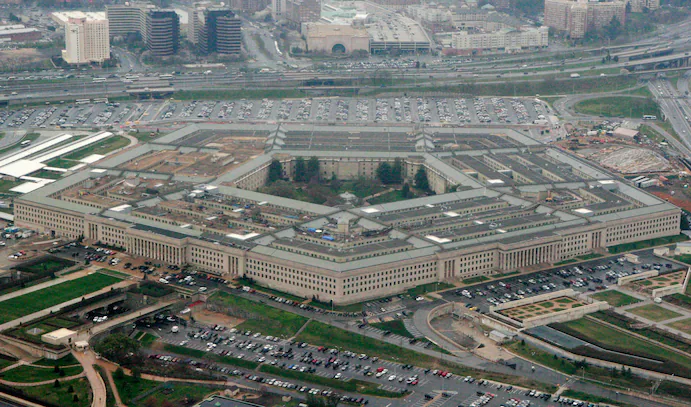Congress is about to add tens of billions of dollars to the military budget. Unrepentant hawks scorn this as inadequate, urging a 50 percent increase, or an additional $400 billion or more a year. Aid to Ukraine totals more than $40 billion this year, and counting. A new buildup is underway in the Pacific. Biden summons North Americans to the global battle between democracy and autocracy, implying that U.S. security depends on spreading democracy — and, implicitly, regime change — worldwide.
What Do North Americans Care About? Not a Cold War with Russia and China
ANGLO AMERICA, 26 Sep 2022
Katrina vanden Heuvel | The Washington Post – TRANSCEND Media Service
US Citizens’ top security concerns include safety at home and protecting jobs.
20 Sep 2022 – The Biden administration will soon release its National Security Strategy, which is being revised in the wake of Russia’s invasion of Ukraine. The document will no doubt trigger a renewed debate about how the United States should gear up for a new Cold War against Russia and China. But before we plunge into a global great-power competition, it’s worth recalling President Biden’s promise to create a “foreign policy for the middle class” and take a look at what most concerns North Americans.
North Americans, it is safe to say, have different — one might suggest more practical — concerns, as revealed in a recent Quinnipiac University poll. Asked about the most urgent issue facing the country today, 27 percent of respondents — the highest number — ranked inflation as No. 1, while only 2 percent ranked Ukraine at the top. In a range of Economist-YouGov polls over the past month, the top foreign-policy concerns included immigration and climate change.
The foreign policy “blob” may be gearing up for a global Cold War, but US citizens are focused on security at home. According to a survey by the nonpartisan Eurasia Group Foundation, nearly half of Anglo Americans think the United States should decrease its involvement in other countries’ affairs; only 21.6 percent would increase it. Nearly 45 percent would decrease U.S. troop deployments abroad; only 32.2 percent would increase them.
Polls, of course, are merely snapshots — and war fever can transform opinion. However, a 2021 report by the Chicago Council on Global Affairs reported many of the same priorities. Far more Anglo Americans (81 percent) said they were concerned about threats from within the country than from outside the country (19 percent). Among foreign policy goals, more than 75 percent of respondents ranked protecting U.S. workers’ jobs and preventing the spread of nuclear weapons, respectively, as very important. Ranked lowest were “helping to bring a democratic form of government to other nations” (18 percent) and “protecting weaker nations against foreign aggression” (32 percent).
What would a sensible strategy for the middle class look like? A recent paper from the Quincy Institute for Responsible Statecraft — “Managed Competition: A U.S. Grand Strategy for a Multipolar World — offers a good start. The author is George Beebe, a former head of the CIA’s Russia analysis unit who is currently director of grand strategy at the institute.
Beebe argues that over the past three decades, “yawning gaps” have emerged not only between “USA’s ambitions in the world and its capacity for achieving those goals,” but also between a “Washington foreign policy elite too focused on promoting U.S. primacy” and “ordinary North Americans yearning for greater stability and prosperity at home.”
He echoes the priorities of most citizens, arguing that “the chief strategic challenge Washington faces today is not to win a decisive battle between freedom and tyranny but to gain a breathing spell abroad that will allow the country to focus on desperately needed internal recovery.”
He then outlines the core of a strategy for this time: a “managed competition” with Russia and China. Recognizing that our economic health is intertwined with China’s, and that Russia’s nuclear arsenal demands prudence, he would “avoid promoting regime change” or otherwise “undermining political and economic stability in Russia and China.” Instead, in a managed competition, our rivals would be countered not only by Anglo American power and alliances, but also by rebuilding “agreed rules of the game,” beginning presumably with efforts to revive nuclear arms agreements and create cyber agreements to limit these growing security challenges.
For this to occur, he notes elsewhere, there must be an agreed end to the war in Ukraine. Beebe concedes that Vladimir Putin’s attack required a strong U.S.-led response. But as when Saddam Hussein invaded Kuwait, Beebe would distinguish between repelling Putin’s aggression and efforts to foster regime change in Moscow or to bring Ukraine into the Western orbit.
In the current euphoria over Russian reversals in Ukraine, this caution is likely to fall upon deaf ears. But a foreign policy for the middle class must find a way to curb our adventures abroad so that we can rebuild our democracy and strength at home. A Cold War against Russia and China might empower the foreign policy elite, enrich the military-industrial-congressional complex and excite our bellicose media, but it ignores the North American people’s common sense.
__________________________________________
 Katrina vanden Heuvel is editorial director and publisher of The Nation and served as editor of the magazine from 1995 to 2019. She has edited or co-edited several books, including The Change I Believe In: Fighting for Progress in the Age of Obama (2011) and Meltdown: How Greed and Corruption Shattered Our Financial System and How We Can Recover (2009).
Katrina vanden Heuvel is editorial director and publisher of The Nation and served as editor of the magazine from 1995 to 2019. She has edited or co-edited several books, including The Change I Believe In: Fighting for Progress in the Age of Obama (2011) and Meltdown: How Greed and Corruption Shattered Our Financial System and How We Can Recover (2009).
Tags: Anglo America, China, Cold War II, Russia, USA, Ukraine, Warfare
DISCLAIMER: The statements, views and opinions expressed in pieces republished here are solely those of the authors and do not necessarily represent those of TMS. In accordance with title 17 U.S.C. section 107, this material is distributed without profit to those who have expressed a prior interest in receiving the included information for research and educational purposes. TMS has no affiliation whatsoever with the originator of this article nor is TMS endorsed or sponsored by the originator. “GO TO ORIGINAL” links are provided as a convenience to our readers and allow for verification of authenticity. However, as originating pages are often updated by their originating host sites, the versions posted may not match the versions our readers view when clicking the “GO TO ORIGINAL” links. This site contains copyrighted material the use of which has not always been specifically authorized by the copyright owner. We are making such material available in our efforts to advance understanding of environmental, political, human rights, economic, democracy, scientific, and social justice issues, etc. We believe this constitutes a ‘fair use’ of any such copyrighted material as provided for in section 107 of the US Copyright Law. In accordance with Title 17 U.S.C. Section 107, the material on this site is distributed without profit to those who have expressed a prior interest in receiving the included information for research and educational purposes. For more information go to: http://www.law.cornell.edu/uscode/17/107.shtml. If you wish to use copyrighted material from this site for purposes of your own that go beyond ‘fair use’, you must obtain permission from the copyright owner.
